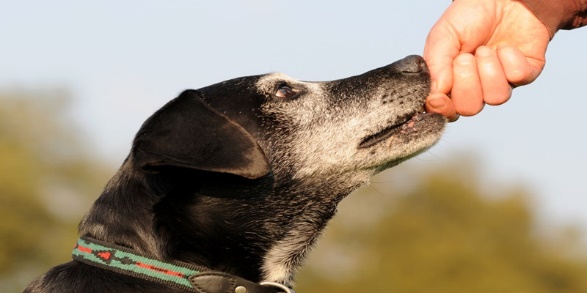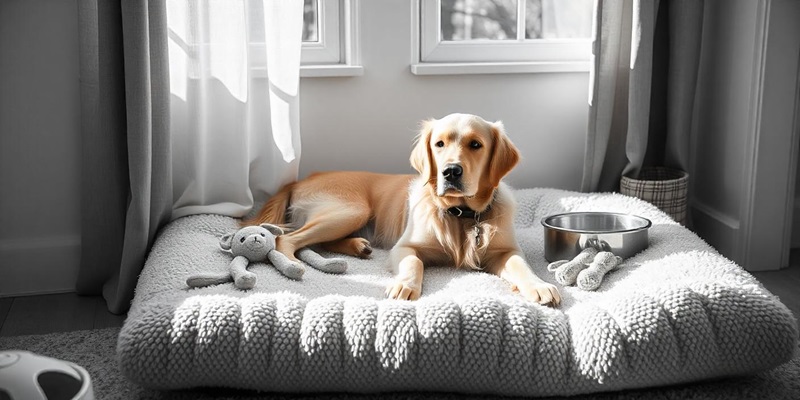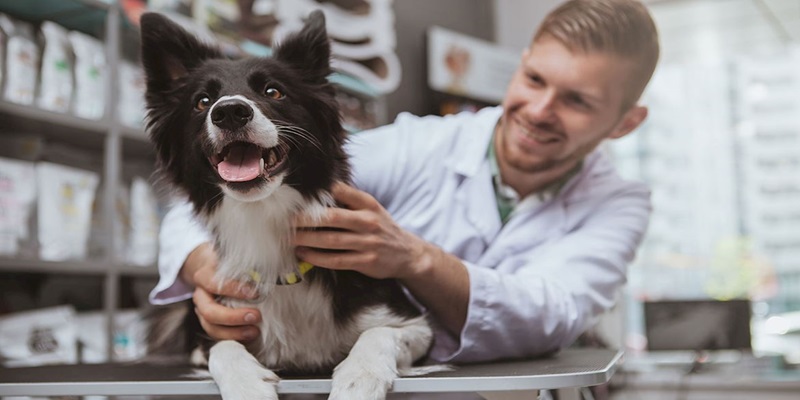A Holistic Approach to Caring for Your Senior Pet
As your pet ages, you should find new ways to keep it cosy and joyful. Embracing a holistic view of care for Senior pets provides total support for their body, feelings, and mind. By examining your pet's needs from different perspectives, you enhance their quality of life and strengthen your bond during this valuable period.
Understanding What Your Senior Pet Needs

As our devoted pals enter their autumn years, they encounter unique hurdles we must manage. Spotting these changes with age is crucial for giving our ageing pets a stellar life.
Body Changes
Senior pets take it easier and don't have as much pep. It's not unusual for them to get joint aches that make it challenging to hop up on couches or climb steps. They might not hear or see as well, either. These health shifts can mess with their daily routines and cheerfulness.
Brain Stuff
Like humans, pets getting on in years might not think as. You may notice they get mixed up, seem out of place, or switch up their sleeping patterns. Some can get anxious or forgetful, too. Grasping these brain tweaks matters when you're tweaking your pet care approach.
Health Problems
When your furry buddy gets older, you may want to find new ways to keep them comfy and joyful. A holistic care approach for your ageing pet will support its body, heart, and mind. You'll enhance their lives and strengthen your bond by considering what they need from all aspects during these golden years.
Switching Up Their Grub for New Needs
Okay, so when your furry buddies get old, what they need to munch on changes. This means you've got to switch up their chow to keep pace with what their bodies are asking for, figuring out those needs and whipping up meals that do the trick.
Calorie Worries
Senior pets often don't burn calories as fast and get less active, which could cause them to pack some extra pounds. You may have to reduce their chow to maintain a trim figure for them. But it would help if you talked with your vet before switching things up because some old fur babies may need more grub to keep their muscles strong.
Vital Goodies for Old Timers
Aging four-legged pals get a boost from food loaded with:
• Omega-3 fats to help with moving around and intelligent thinking
• Antioxidants to take on cellular wear and tear
• Top-notch protein to support their muscles
• Fibre to keep the belly working right and tip the scales in their favour
Tackling Problems That Come with Getting Up There in Years
Many ageing animals get certain sicknesses that a change in grub can handle. For instance, critters with kidney issues might need less phosphorus chow, and those with sore joints could do with some extra glucosamine and chondroitin. You must work with your animal doctor to create a custom grub plan tailored to your furry buddy's health needs.
Make Sure Your Old Buddy Stays on the Move and Sharp-Witted
When pets get up there in years, keeping their noggin and physique tip top is super important. Plugging your senior sidekick into fun that tests their minds and muscles can pump up the joy in their golden years.
Mind Teasers
Puzzle pieces and cool games keep the brains of your older fur buddy sharp. Besides fun, these activities fight off brain ageing. It would help if you mixed up their playthings for a new thrill now and then. And don't shy away from training your veteran companion in fresh skills as a neat way to connect and make their brain hustle.
Light Moves
Your senior animal pal might not have the zip they used to, but they still have to move. Tune their routine to what they can take, like brief strolls and around o, and mild games to maintain muscle strength and joint limberness. Always chat with the animal doctor to tailor an exercise plan that fits your pet pal's health needs.
Hanging Out
Remember, hanging out with friends is super crucial. Setting up playtime with other critters or chill sessions with the fam can pep up your pet and make their noggin work better. Even easy stuff, like giving them a brush or a soothing rubdown, is dope for the feels and strengthens your connection.
Tweaking Their Zone to Move and Chill with Ease

Getting old means our furry buddies need their space switched up to keep it cosy and help them move around without a hitch. Adapting their crib is a big deal so they can wander around and have a solid quality of life.
Boosting Home Safety
Look at your home like your pet would. Consider slippery floors: Add non-slip mats to avoid tumbles. Ramps or steps could help old pets hop onto cosy spots like beds or couches. If they have creaky joints, put their food and water dishes higher so they don't have to bend so much.
Making Things More Comfy
Snag some orthopaedic beds filled with memory foam for extra softness for tender joints. Stick these beds in quiet and toasty spots, perfect for your furry friend to sleep without a care. If they leak now and then, grab waterproof bed liners. They stay dry and keep your stuff clean, too.
Shaking Up Exercise Routines
Exercise matters, but tweak routines to align with what your Senior pet can handle. Swap out lengthy strolls for shorter, frequent jaunts. Swimming is excellent for buddies with joint troubles. Always chat with your vet when tailoring an exercise strategy to suit your pet's needs and boundaries.
Partnering With Your Vet for Senior Pet Health

Getting friendly with your vet is super crucial as your furry friend ages. Regular vet visits are the secret to staying ahead of age-related health issues in Senior pets, making it easier to catch and deal with problems early on.
Crafting Tailored Health Strategies
Chat with your vet when planning a health strategy tailored to your ageing companion. You might work on things like:
Regular health exams Adjustments in their vaccination timetable Guidance on nutrition tailored to their needs Workout routines designed for their elderly stage.
Concentrate on these aspects to keep your ageing pet joyful, healthy, and comfortable in its later years.
Watching Out for Persistent Health Conditions
A bunch of senior animals experience long-standing health problems requiring steady attention. Your veterinarian can assist you with the following:
• Recognize signs and monitor the progression of conditions like arthritis or renal challenges
• Implement effective response strategies
• Tweak medications when necessary
• Decide the right moment to consult an expert
Stay connected with your vet to ensure your ageing pet receives the most compassionate and highest care.
Taking Care of Your Aging Pet in Every Way
When your furry buddy gets older, caring for them from every angle helps them enjoy life more. You have to take care of their body, feelings, and where they live. This is a step up from just taking them to the vet. Shower them affectionately, stay chill, and keep an eye on their total health, and you've got a recipe for making their twilight years super cosy and full of smiles.
Related Posts
- 5 Best Dog Breeds for First-Time Owners
- Pet Allergies: How To Live Comfortably With Pets When You Have Allergies
- How To Build A Pet-Friendly Garden: Safe Plants And Features For Pets
- The Science Behind Pet Emotions: Do They Feel Like Humans?
- A Holistic Approach to Caring for Your Senior Pet
- Pet Nutrition 101: What Ingredients to Look For in Food Labels